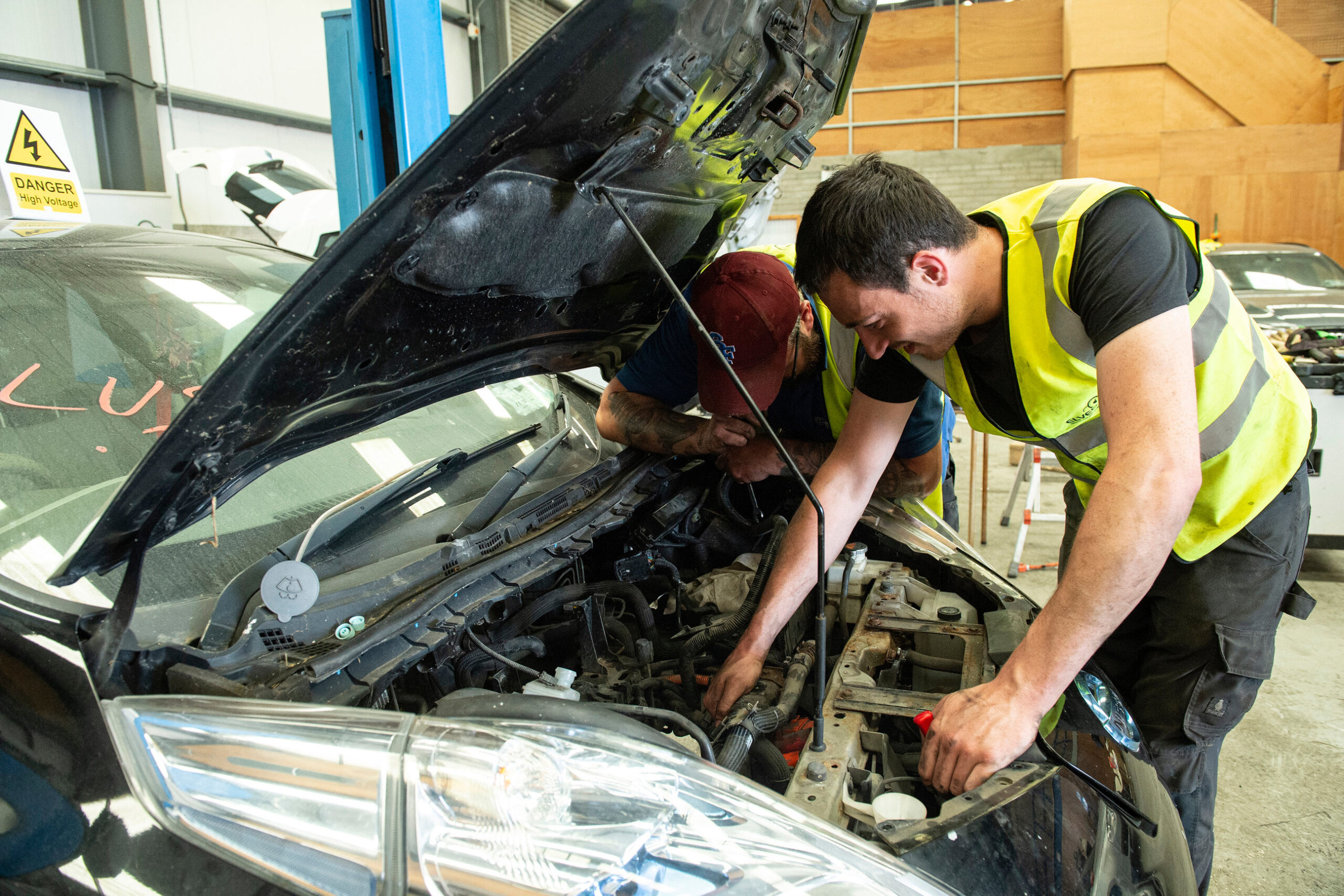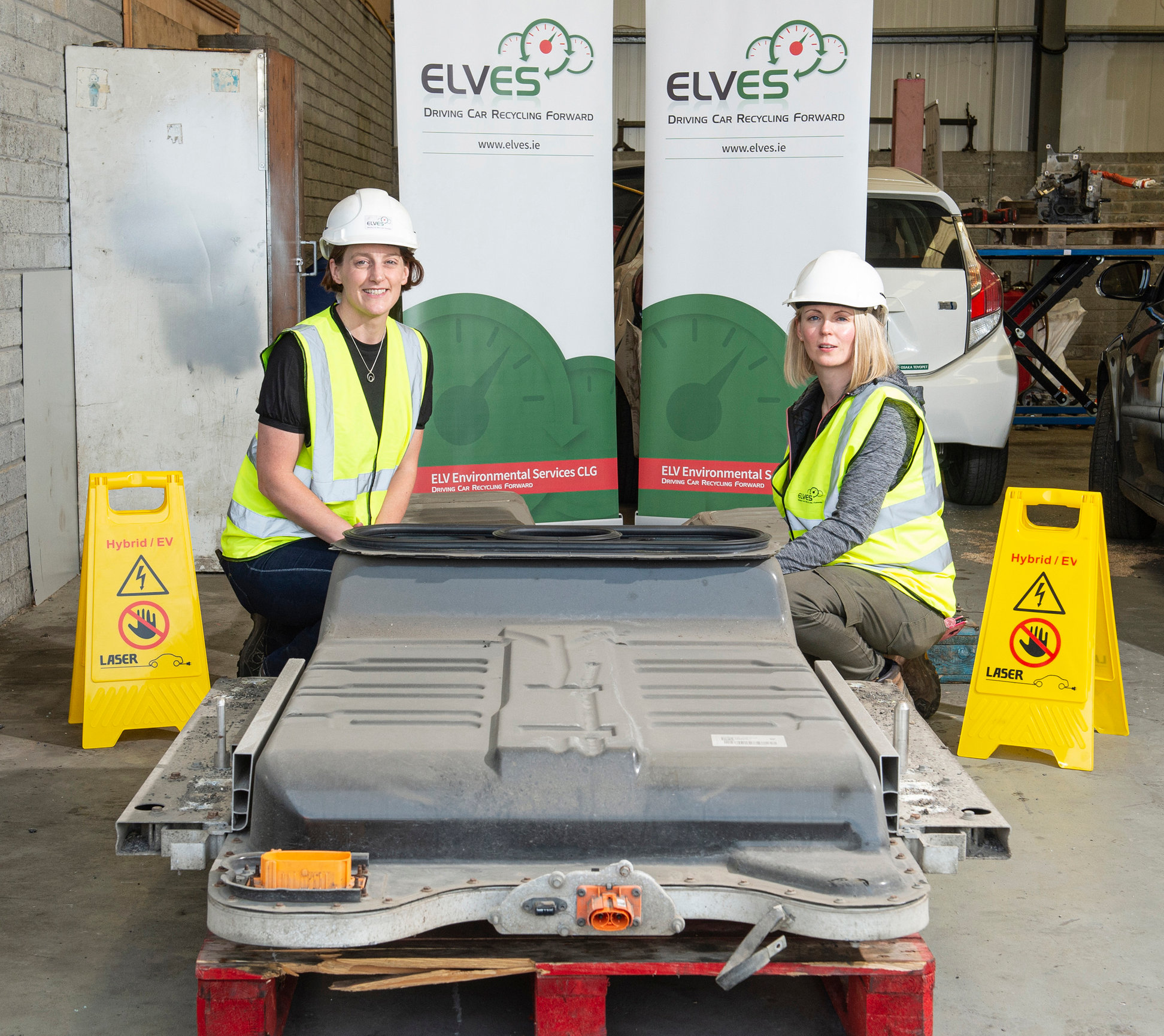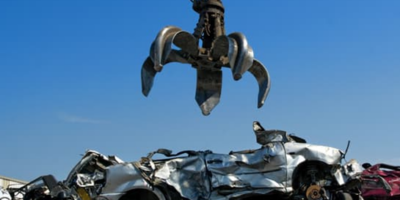ELVES has published the first ever Irish Data Matrix and supporting report on the potential reuse and recycling value of Electric Vehicles (EVs)and their component parts. The Data Matrix and report is a key outcome of ELVES Electric Loops project, a circular economy focused initiative funded by the Environmental Protection Agency’s (EPA) Green Enterprise programme.
The dataset created is targeted at Authorised Treatment Facilities (ATFs) as well as metal and electronics recyclers who will be the creators of future reuse and recycling avenues for the components of end-of-life EVs. The information provided from this ELVES Electric Loops project will help them to start making these pathways.

ELVES began the Electric Loops project in February 2023. By mid-year, two EVs were de-polluted and their component parts removed. The parts were assessed to understand their value for reuse or for recycling, thereby helping to create a future circular economy. The component parts were then placed for general sale between August 2023 and April 2024 with recycling assessments occurring concurrently. The result is an EV parts dataset in the form of a Data Matrix and supporting report focused on the separate needs of ATFs and metal recyclers.
Nearly €8,000 worth of second-hand parts sales was achieved from the two vehicles, with over €5,000 of revenue from EV related component parts and €2,500 in sales from non-EV related components. EVs contain both unique component parts, such as inverters and other components that have been modified for use in EVs (e.g. high voltage AC Compressors), as well as containing many components that are the same as in a diesel or petrol car.
The EV related parts sold included one battery, the onboard chargers and Positive-Temperature-Coefficient (PTC) heaters, cabling, an inverter, and a high voltage AC compressor. Three parts were not eligible for sale: one battery, a DCDC converter, and one of the motors, although they would have been in demand, hence the total sales value would be greater than indicated.
The onboard charger and the PTC heaters from both vehicles were sold. Findings showed that the PTC heater was the fastest component part to sell. Remanufacturing analysis showed strong potential for remanufacturing of EV related parts especially for the larger parts, however this market is not yet developed.

In terms of assessing the potential recycling values for salvaged items, analysis suggested that higher prices would be achieved for components such as high voltage cabling, control modules, electric motors, and inverters and converters. Cabling could achieve €900 per tonne and potentially more depending on the percentage of copper present in the cabling. As end-of-life EV volume increases, it is likely specific recycling avenues will develop for EV specific parts, and more certainty can be provided on the price per tonne that ATFs can achieve for these components.
According to Elena Wrelton of ELVES, “Our initial findings are that it is still very early days for reuse and recycling of electric vehicle parts and that volume needs to increase before markets can develop to scale. Electric Loops is the only project of its kind in Ireland and this important data provides a valuable starting point in understanding the potential reuse and recycling value in electric vehicles. It will enable the recycling industry to capture the value in the reuse and recycling of these vehicles, a key facet of a future circular economy. It will also help Irish authorities to report on the levels of reuse and recycling undertaken.”
To find out more about Electric Loops and the Electric ELVES programme visit: www.elves.ie/electricloops or www.electricelves.ie



Leave a Reply